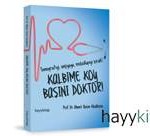İŞLENMİŞ DEĞİL, YOZ VE YOZLAŞTIRILMIŞ GIDALAR…

Dikkat: Yazının sonunda ek var!
***
İndependent Türkçe‘ deki yazım:
İşlenmiş ve aşırı işlenmiş gıda tabirlerini benden yüzlerce kere belki bin kere sayısız kere duymuş yazılarımda okumuş olmalısınızdır.
Bugün size benim de dilimden düşmeyen bu işlenmiş sıfatının nasıl şeytani bir kelime olduğunu nasıl sinsice gıdalar sokulduğunu anlatmak istiyorum.
İşlenmiş kelimesi insan zihninde müspet algı yaratan bir kelimedir.
Çünkü işlemek demek bir ham maddenin birtakım işlemlerden geçmesi onun üzerinde çalışılması onun daha değerli kılınması şeklinde bir algı yaratır.
Bu tabii ki bazı ürünler için yüzde 100 doğrudur.
Mesela ham petrol vardır, bunun işlenmesiyle uçak benzini yapılır ve ham petrol bu dönüşümle çok daha değerli çok daha fazla paraya satılan bir ürün haline gelir.
Gene işleme kelimesi kadınların nakışlarını oyalarını dantellerini de çağrıştırır ve bunlar da göze hoş gelen şeylerdir.
İşte bu işlenmiş gıda ya da aşırı işlenmiş gıda tabirleri de insanların aklında o gıdanın daha değerli olduğu algısı yaratabilir.
Bu sebeple bu tür gıdalara yoz veya yozlaştırılmış gıdalar denmesinin insan sağlığı bakımından çok daha doğru olduğu kanaatindeyim.
Yoz ve yozlaştırılmış arasındaki fark şu, mesela bir gıdanın tabiatta bir benzeri yoksa bir şekerleme, gofret, cips gibi bir ürün… bunların tabiatta bir karşılığı yok. Bunlara yoz gıda diyeceğim.
Yozlaştırılmış ise tabiatta onun temeli olan bir gıdanın çeşitli fiziki, kimyasal işlemlerle yoz hale getirilmesine ise yozlaştırma gıda diyeceğim.
Mesela, elma. Bu tabiatta olan bir meyve ama bu elma şekerlendirip renklendirip bir elma şeker haline getirdiğiniz zaman bu yozlaştırılmış bir gıda olmaktadır.
Fıstık mesela. Fıstık tabiatta olan bir kuru yemiştir ama siz bu fıstığı kavurursanız, ona glutamat eklerseniz, şeker, tuz, boya koyarsanız, bozulmasın diye bazı kimyasallar koyarsanız artık o fıstık olmaktan çıkar yozlaştırılmış gıdaya dönüşür.
Bu yozlaştırılmış gıdaların insan sağlığı için çok zararlı olduğunu defalarca söyledim ama bir kere daha tekrarlamakta hiçbir mahsur yok, aksine faydalı.
Günümüzde adet salgın haline gelen hastalıklar var. Obezite, diyabet, kalp damar hastalıkları, kalp krizleri, felçler, astım, alerji, egzama, depresyon, Parkinson, Alzheimer aklınıza ne geliyorsa bu hastalıkların tümünün altında bu yoz ve yozlaştırılmış gıdalarla beslenmenin rolü var.
Çünkü bu gıdalar insan vücudunda bağırsaklardaki bağırsak mikrobiyotası adını verdiğimiz o mikrop dengesini bozduklarını sayısız araştırma ile bilim adamları gösterdiler.
Bu dengenin bozulması vücutta kronik bir enflamasyona yani kronik bir iltihaba yol açıyor. Burada herhangi bir mikrobun etkisi söz konusu değil.
Bu tamamen bağırsaktaki mikrop dengesinin değişmesine bağlı olarak gelişen bir durum.
İşte bu kronik enflamasyon bütün bu kronik hastalıkların temelinde yatan esas mekanizmadır ve bun neticesi olarak ortaya çıkan kanda ölçülebilen oksidatif stres adı verilen olay da bunun altında yatan mekanizmalardır.
Günümüzde bir kişiye diyabet teşhisi konduğu zaman, tansiyon yüksekliği teşhisi konduğu zaman ilk yapılan şey bunlara ilaç yazmak oluyor.
Bu son derecede yanlış bir şey. Çünkü bu hastalıkların sebebi kanda o kimyasal maddenin o ilacın eksik olması değil. Bu hastalıklar hayat tarzındaki yanlışlardan kaynaklanıyor.
Dolayısıyla bu kişilere yapılması gereken şey ilaç vermek değil tam aksine hayat tarzındaki eksikleri, yanlışları bulmak ve bunları yoluna sokmak olmalıdır.
Böyle yapılmadığı takdirde yani bir şeker hastasına, bir tansiyon hastasına daha ilk şeker yüksekliğinde ilk tansiyon yüksekliğinde hemen ilaç yazıldığı zaman bu kişi de şöyle düşünüyor:
Benim beslenmeme, hareket etmeme, uykuma, strese ona buna dikkat etmeme hiç gerek yok diyor. İlacımı alıyorum. O halde her şeyi yerim her şey yaparım bana bir şey olmaz.
Allah sizi yoz ve yozlaştırılmış gıdalardan uzak tutsun.

Kaynaklar: https://twitter.com/TurkishIndy/status/1670335811823235074
Seyretmek ve dinlemek için: https://www.youtube.com/watch?v=mPGxlasqv8k
***
EK 2 (28.7.2023): Sadece %10 oranında aşırı işlenmiş gıda bulunan diyetler bile erken ölüm riskini artırabilir. https://www.dailymail.co.uk/health/article-12339841/Now-scientists-really-taking-biscuit-diets-just-10-ultra-processed-raise-risk-early-death-study-warns.html
Makale: Ultra-processed food consumption is associated with all-cause and cardiovascular mortality in participants with type 2 diabetes independent of diet quality: a prospective observational cohort study
K: https://ajcn.nutrition.org/article/S0002-9165(23)66025-3/fulltext
***
EK 3 (20.10.2023): İşlenmiş gıdalar, doğal hali değiştirilmiş gıdaları ifade eder. Yeni bir çalışma, aşırı işlenmiş gıdaların sigara ve uyuşturucu kadar bağımlılık yapıcı olabileceğini öne sürüyor.
Kaynak: https://x.com/WebMD/status/1715178524963733581?s=20
Processed foods refer to any food that’s changed from its natural state. This can include food that was simply cut, washed, heated, pasteurized, canned, cooked, frozen, dried, dehydrated, mixed, or packaged. It also can include food that has added preservatives, nutrients, flavors, salts, sugars, or fats.
Usually, people think processed foods are “bad.” While there are a lot of processed options that are less nutritious, some processed foods are healthy.
What Are the Types of Processed Foods?
The United Nations has a food grouping scale called the NOVA food classification. It puts food into four groups:
Group one: Unprocessed or minimally processed foods. This group includes foods like fresh blueberries, roasted nuts, chopped vegetables, or other foods that have slight changes. These foods are prepared like this to make them easier to access.
This group might also include things that have been dried, frozen, refrigerated, filtered, fermented, or put in vacuum-sealed packages. This is meant to preserve the natural foods and allow you to safely eat them later.
Group two: Processed culinary ingredients. This group contains options like butter, oils, sugar, or salts. They’re ingredients that come from nature but are slightly changed. They may have been pressed, refined, milled, or dried. They’ve gone through this process to make it easier for you to use them in your kitchen. These options aren’t supposed to be eaten alone. They’re meant to be added to foods during meal preparation.
Group three: Processed foods. These include canned fish, fruits in syrup, bottled vegetables, cheese, fresh bread, or other options that were made with added salt, oil, sugar, or other things from groups one or two.
K: https://www.webmd.com/diet/what-are-processed-foods
Makale: What Are Processed Foods?
***
EK 4 (20.10.2023): Soumya Swaminathan, 3’üncü Uluslararası Singapur Halk Sağlığı Konferansı’nda yaptığı açılış konuşmasında, aşırı işlenmiş gıdaları, bağımlılık yapmalarına atıfla, tütün ürünlerine benzetti. Swaminathan, “Halk sağlığı çalışanlarının, artık özellikle gençleri bu tür şeker, yağ ve tuz oranı yüksek yiyeceklere bağımlılıktan uzaklaştırmanın yollarını bulması gerektiğini düşünüyorum.” dedi. Aşırı işlenmiş gıdaların, devasa bir endüstriye dönüştüğünü belirten Swaminathan, beyinde salgılanan kimyasalların söz konusu gıdaların tüketiminden sonra daha fazla tüketme isteği uyandırdığını vurguladı.
Pandemi sonrası dönemde halk sağlığını tehdit eden unsurlar
Pandemi sonrası dönemde, küresel ölçekte halk sağlığını tehdit eden unsurlara değinen eski DSÖ Baş Bilim İnsanı Swaminathan, söz konusu unsurların başında iklim değişikliği, sağlık çalışanlarına yatırım ve ergen bireylerin beden ve zihinsel sağlığını güvende tutmanın geldiğini belirtti. Swaminathan, artan sıcaklıklar, deniz seviyesinin yükselmesi, yağış düzenindeki değişiklikler gibi olayların, içilebilir su mevcudiyetini azalttığını, toprak sağlığını bozduğunu ve mahsul zararlıları ile zoonotik hastalıkların ortaya çıkmasına neden olduğunu söyledi.
Bahsi geçen olayların, daha sonra “insan sağlığını etkileyerek ısıya bağlı hastalıkları artıracağını” belirten Swaminathan, “Hava kirliliği nedeniyle hepimizin kalp-akciğer hastalıklarının tekrar arttığını göreceğimizi düşünüyorum.” dedi. Bunun yanı sıra, ergen bireylerin zihinsel sağlığının korunmasının önemine dikkati çeken Swaminathan, bu yaş grubuna atfen “Zihinsel sağlığına gerçekten dikkat etmeliyiz çünkü intiharların, şiddetin, trafik kazalarının, zararlı madde kullanımının arttığını görüyoruz.” dedi.
Swaminathan, internet bağımlılığı ve sosyal medyanın da ergenlik çağındakilerin fiziksel ve zihinsel sağlıklarında büyük rol oynadığını belirtti. Sağlık çalışanı sayısındaki yetersizliğin küresel çapta gözlemlendiğini kaydeden Swaminathan, bu durumun bazı ülkeleri diğerlerinden daha fazla etkilediğini dile getirdi. Swaminathan, “En az gelişmiş ülkelerdeki sağlık çalışanlarının, sıklıkla, yüksek gelirli ülkelere, oradaki açığı doldurmak için göç ettiğini görüyoruz.” diye konuştu.
***
EK 5 (8.11.2023): Dört çalışmanın meta-analizinde, yüksek düzeyde aşırı işlenmiş gıda tüketen yetişkinlerde enflamatuar bağırsak hastalığı riski kontrol grubundan %47 daha fazla bulundu.
Kaynak: https://www.medscape.com/s/viewarticle/997855
Makale: New Study Ties Ultraprocessed Foods to IBD
***
EK 6 (29.2.2024): Greater exposure to ultra-processed food was associated with a higher risk of adverse health outcomes, especially cardiometabolic, common mental disorder, and mortality outcomes. These findings provide a rationale to develop and evaluate the effectiveness of using population based and public health measures to target and reduce dietary exposure to ultra-processed foods for improved human health. They also inform and provide support for urgent mechanistic research.
Kaynak: https://www.bmj.com/content/384/bmj-2023-077310
Makale: Ultra-processed food exposure and adverse health outcomes: umbrella review of epidemiological meta-analyses
***
EK 7 (1.3.2024): Ultra-processed foods damage health and shorten life
Hundreds of epidemiological studies and meta-analyses have reported associations between ultra-processed food consumption and adverse health outcomes. In a linked paper (doi:10.1136/bmj-2023-077310), Lane and colleagues have now carefully reviewed the evidence from 45 meta-analyses encompassing almost 10 million participants.1 They found direct associations between exposure to ultra-processed foods and 32 health parameters including mortality, cancer, and mental, respiratory, cardiovascular, gastrointestinal, and metabolic ill health. For instance, a pooled analysis of seven cohorts showed a 10% increase in ultra-processed food consumption to be associated with a 12% (95% confidence interval 1.11 to 1.13) higher incidence of type 2 diabetes.
The quality of the evidence was strong for all cause mortality, obesity, and type 2 diabetes (this evidence was rated as of moderate quality using the GRADE system, which initially considers all observational studies as low quality evidence). Overall, the authors found that diets high in ultra-processed food may be harmful to most—perhaps all—body systems.
Ultra-processed foods are not merely modified foods. As defined by the Nova classification,2 they are formulations of often chemically manipulated cheap ingredients such as modified starches, sugars, oils, fats, and protein isolates, with little if any whole food added, made palatable and attractive by using combinations of flavours, colours, emulsifiers, thickeners, and other additives. No reason exists to believe that humans can fully adapt to these products. The body may react to them as useless or harmful, so its systems may become impaired or damaged, depending on their vulnerability and the amount of ultra-processed food consumed.
Lane and colleagues call for more mechanistic research to identify how consumption of ultra-processed food harms health.1 This does not mean that public policies and actions should be delayed. As these authors acknowledge, multiple mechanisms, likely acting in combination, are plausible.
The grossly imbalanced composition of ultra-processed foods means that their increased intake makes diets energy dense, high in sugar and saturated fat, and low in protein, fibre, micronutrients, and health protective phytochemicals such as flavonoids and phytoestrogens.345 They also contain additives including colours, emulsifiers, and sweeteners, linked by experimental and epidemiological evidence to imbalances in gut microbiota and systemic inflammation.1
Techniques often used, such as extrusion and intense heat, degrade the natural food matrix causing loss of nutrients,6 disturbances in food digestibility and nutrient bioavailability,7 and reduction of satiety.8 They also make ultra-processed food soft, which shortens chewing and swallowing time, and increase energy intake.9 Consumption of these foods has also been associated with increased concentrations of acrylamide and phthalates in the blood or urine; these are toxins created during processing or released from packaging materials, respectively.1011
Ultra-processed foods are engineered to be highly desirable, combining sugar, fat, and salt to maximise reward,1213 and adding flavours that induce eating when not hungry.14 Many are addictive, judged by the standards set for tobacco products,15 and aggressively marketed with meal deals, super sizing, and advertising.
What can be done to control and reduce production and consumption of ultra-processed food, which is rising worldwide?16 Reformulation does not eliminate harm,17 and profitability discourages manufacturers from switching to make nutritious foods. Moreover, the investment management companies that increasingly dominate corporate shareholdings would likely resist any such change.18
Therefore, public policies and actions are essential. These include national dietary guidelines that recommend varieties of unprocessed or minimally processed foods and freshly prepared meals and avoidance of ultra-processed foods19; institutional food procurement that aligns with these guidelines; front-of-pack labels that clearly identify ultra-processed foods; restricting advertising and prohibiting sales in or near schools and hospitals; and fiscal measures that make unprocessed or minimally processed foods and freshly prepared meals as accessible and available as, and cheaper than, ultra-processed foods.
Importantly, smallholders, family farmers, and independent businesses that grow, make, and sell unprocessed or minimally processed foods should be recognised, supported, and fully represented in all policy making and its monitoring. Conversely, corporations responsible for ultra-processed foods should be required to explain publicly how their products are made and to give evidence to but not be represented on policy making bodies.
It is now time for United Nations agencies, with member states, to develop and implement a framework convention on ultra-processed foods analogous to the framework on tobacco. These agencies also have an important role in publishing, publicising, and promoting examples of best practice.
Finally, multidisciplinary investigations are needed to identify the most effective ways to control and reduce ultra-processing and to quantify and track the cost-benefits and other effects of all such policies and actions on human health and welfare, society, culture, employment, and the environment.
Kaynak: https://www.bmj.com/content/384/bmj.q439
Makale: Reasons to avoid ultra-processed foods
***
EK 8 (1.3.2024): The BMJ’de yayımlanan yeni bir çalışma, ultra işlenmiş gıdaların insan sağlığı üzerindeki zararlı etkisini vurgulayarak, yaklaşık 10 milyon katılımcıyı içeren 45 farklı meta-analizin bir şemsiye incelemesine göre, 30’dan fazla olumsuz sağlık sonucu ile bir korelasyon olduğunu ortaya koydu.
Çalışmada; paketlenmiş atıştırmalıklar, şekerli tahıllar ve tüketime hazır ürünler gibi ultra işlenmiş gıdalar, yüksek oranda ilave şeker, yağ ve tuz içermelerinin yanı sıra düşük vitamin ve lif içeriği nedeniyle uzun süredir kötü sağlık koşullarıyla ilişkilendirildi.
Bu ürünlerin bazı yüksek gelirli ülkelerde toplam günlük enerji alımının %58’ine kadar katkıda bulunabildiğini, düşük ve orta gelirli ülkelerde ise önemli bir artış gözlemlendiğini gösterdi.
Kalp hastalığı riskini yüzde 50 artırıyor
Son üç yıl içinde gerçekleştirilen incelemede, her biri çeşitli meta-analizleri içeren 14 inceleme makalesinden elde edilen kanıtlar değerlendirildi. Ultra işlenmiş gıdalara maruz kalma tahminleri, gıda sıklığı anketleri ve diyet hatırlamaları dahil olmak üzere farklı kaynaklardan toplandı.
Sonuçlar, ultra işlenmiş gıdalara maruziyet arttıkça 32 olumsuz sağlık sonucu riskinin de arttığını tutarlı bir şekilde gösterdi. İkna edici kanıtlar, daha yüksek alımı kardiyovasküler hastalıklara bağlı ölüm riskinde %50 artış, anksiyete ve yaygın ruhsal bozukluk riskinde %48-53 artış ve tip 2 diyabet riskinde %12 artış ile ilişkilendirdi.
Ayrıca, çalışma bulguları, daha yüksek ultra işlenmiş gıda alımını herhangi bir nedenden ölüm riskinde %21, anksiyete ve yaygın ruhsal bozukluk riskinde %40-66 ve tip 2 diyabet riskinde %12 artış ile ilişkilendirdi.
***
EK 9 (7.4.2024): High intake of ultra-processed food (UPF) has been associated with increased risk of chronic kidney disease(CKD), but the results remain inconsistent. We therefore performed this systematic review and dose–response meta-analysis of observational studies that shed light on the association between UPF consumption and the risk of CKD.
Our findings indicate that high consumption of UPF is significantly associated with an increased risk of CKD. Future research with prospective design is required to confirm this positive association.
Kaynak: https://www.frontiersin.org/articles/10.3389/fnut.2024.1359229/full
Makale: Ultra-processed food consumption and chronic kidney disease risk: a systematic review and dose–response meta-analysis
***
EK 10 (9.5.2024): Ultra işlenmiş yani yozlaştırılmış gıdalar, özellikle hazır et, kümes hayvanları ve deniz ürünleri, şekerli içecek ve süt bazlı tatlılar tüm sebeplere bağlı ölüm oranlarıyla bağlantılı bulundu. Bulmasaydınız şaşardım.
Kaynak: https://www.bmj.com/content/385/bmj-2023-078476
Makale: Association of ultra-processed food consumption with all cause and cause specific mortality: population based cohort study
***
EK 11 (23.6.2024): İşlenmiş yani yoz ve yozlaştırılmış paketli, hazır gıdalar diyet kalitesinden bağımsız kabızlık da yapıyor.
Makale: Association of Ultra-processed Food and Unprocessed or Minimally Processed Food Consumption With Bowel Habits Among U.S. Adults
Kaynak: https://www.cghjournal.org/article/S1542-3565(24)00448-8/abstract#%20
***
EK 12 (15.8.2024): Tip 2 diyabetli hastalarda, daha fazla ultra işlenmiş (yani yoz ve yozlaştırılmış) gıda tüketmek, genel mikrovasküler komplikasyon ve özellikle diyabetik böbrek hastalığı riskini artırıyor. Riske kısmen vücut ağırlığı, lipit metabolizması ve iltihaplanma ile ilgili biyo-belirteçler de aracılık ediyor.
Kaynak: https://linkinghub.elsevier.com/retrieve/pii/S0002916524006464
Makale: Association of ultraprocessed food consumption with risk of microvascular complications among individuals with type 2 diabetes in the UK Biobank: a prospective cohort study
***
EK 13 (22.10.2024): MUZIR GIDALAR SİYAH NAYLON POŞETTE SATILMALI
X’ deki paylaşım: https://x.com/drahmetrasim/status/1848650751318307124
***
EK 14 (22.11.2024): Aşırı işlenmiş yani paketli yoz hazır gıdalardan zengin beslenme biyolojik yaşlanmanın hızlandırıyormuş ve sebebi de bunların besin değerlerinin düşük olmasıymış. Yetmez ama evet! Yoz gıdalardaki ve paketlerindeki yüzlerce katkı maddesinin etkisini görmemek olacak iş değil.
Makale: Ultra-processed food consumption is associated with the acceleration of biological aging in the Moli-sani Study
***
EK 15 (19.8.2025): Daha az işlenmiş gıdalarla beslenenler, aşırı işlenmiş-süslenmiş-püslenmiş gıdalarla beslenenlere göre daha fazla kilo verdiler.
Makale: Ultraprocessed or minimally processed diets following healthy dietary guidelines on weight and cardiometabolic health: a randomized, crossover trial
Kaynak: https://www.nature.com/articles/s41591-025-03842-0
***
EK 16 (12.1.2026): 108.000’den fazla Fransız yetişkin üzerinde yapılan çalışmada, yaygın olarak kullanılan gıda koruyucu katkı maddelerinin fazla alınmasının Tip 2 diyabet riskini yüzde 50 artırdığı tespit edildi.
Bunlar arasında potasyum sorbat (E202), potasyum metabisülfit (E224), sodyum nitrit (E250), asetik asit (E260), sodyum asetatlar (E262) ve kalsiyum propiyonat (E282) gibi antioksidan olmayan koruyucular ile sodyum askorbat (E301), alfa-tokoferol (E307), sodyum eritrobat (E316), sitrik asit (E330), fosforik asit (E338) ve biberiye özleri (E392) gibi antioksidan katkı maddeleri yer alıyor.
İşlenmiş etler, peynirler, gazlı içecekler, atıştırmalıklar ve hazır yemekler gibi aşırı işlenmiş-süslenmiş gıdalarda yaygın olarak bulunan bu katkı maddelerinin, muhtemelen bağırsak mikrobiyotası değişiklikleri, düşük dereceli enflamasyon veya doğrudan hücresel etkiler gibi mekanizmalar yoluyla metabolik bozulmaya katkıda bulunabileceği düşünülüyor.
Bu çalışma da sayısız başka çalışma gibi, gıda koruyucularının metabolik olarak tamamen etkisiz olmadıklarını destekliyor.
Bunların FDA tarafından onaylı olduğuna bakmayın, gıdaların raf ömrünü uzatan kimyasallar sizin hayat sürenizi kısaltır. Aşırı işlenmiş-süslenmiş gıdalardan uzak durun!
Kaynak: https://www.nature.com/articles/s41467-025-67360-w
Makale: Associations between preservative food additives and type 2 diabetes incidence in the NutriNet-Santé prospective cohort
***
EK 17 (27.1.2026): Bazı aşırı işlenmiş- süslenmiş-paketlenmiş gıdaların sağlıklı olarak etiketlenmesi, endüstriyi meşrulaştırıyor, tüketicileri yanıltıyor ve genel tüketimi azaltma yönündeki temel halk sağlığı hedefinden uzaklaştırıyor.
“Sağlıklı atıştırmalık” tabiri bir zokadır.
Kaynak: https://x.com/drahmetrasim/status/2016236620823876046?s=20
***
EK 5 (16.2.2026): ABD’de satılan bazı yulaf bazlı ürünlerde klormekuat (chlormequat) adlı bir tarım kimyasalının kalıntıları tespit edildi, bazı ABD’li bireylerin idrarında da bu maddeye rastlandı.
Grafikteki oranlar (mesela %92 oat-based foods) gerçekten çalışmada bildirilen tespit oranlarını yansıtıyor — yani “ürünlerin yüzde kaçında ölçülebilir seviyede?” sorusunun cevabı.
Bu, zararlı dozda olduğu anlamına gelmez.
Klormekuat nedir?
Bitkilerin boyunu kısaltmak için kullanılan bir büyüme düzenleyicidir.
ABD’de uzun süre doğrudan kullanımına izin verilmemişti ancak ithal tahıllar yoluyla gıda zincirine girebiliyor.
Hayvan çalışmalarında: Yüksek dozlarda üreme ve gelişim üzerine olumsuz etkiler bildirildi.
İnsanlarda: Günlük beslenme yoluyla maruz kalınan düşük seviyelerin kısırlık veya ergenlik gecikmesine yol açtığını gösteren net klinik delil yok.
Tabii ki yersen! https://www.nature.com/articles/s41370-024-00643-4?utm_source=chatgpt.com
Kaynak: https://www.nature.com/articles/s41370-024-00643-4?utm_source=chatgpt.com
Makale: A pilot study of chlormequat in food and urine from adults in the United States from 2017 to 2023
***
İlgili Diğer Yazılar:
- HAZIR GIDA ŞİRKETLERİNE DAVA AÇILDI
- YOZ VE YOZLAŞTIRILMIŞ GIDALAR SAĞLIĞIMIZI TEHDİT EDİYOR
- AŞIRI İŞLENMİŞ YANİ YOZ GIDALAR AĞIZ BOĞAZ VE YEMEK BORUSU KANSERİNE YOL AÇIYOR
- BİZİ AŞIRI İŞLENMİŞ GIDALAR HASTA EDİYOR
- SUNİ ET VE BÖCEK BURGER GİBİ YOZ GIDALAR KALP DAMAR HASTALIKLARI VE BUNLARA BAĞLI ÖLÜMLERİ ARTIRIYOR

















